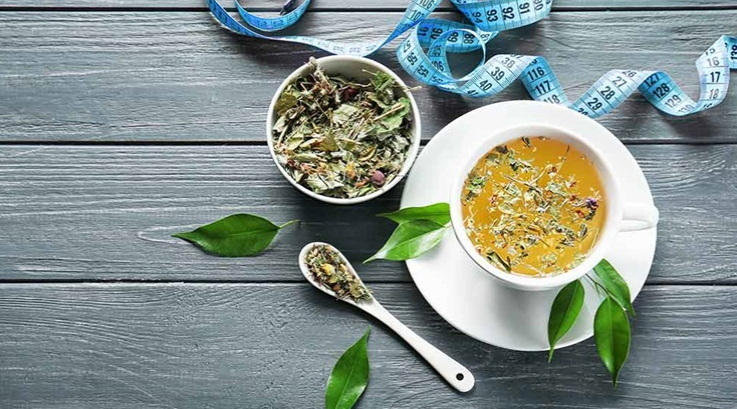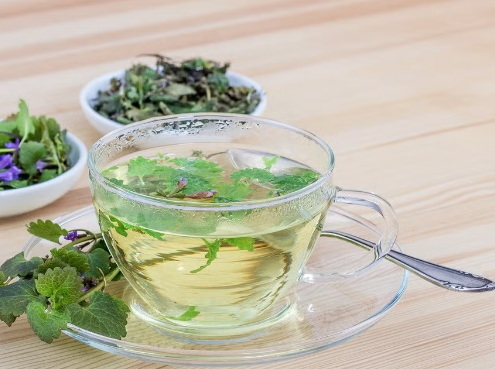Content Menu
● Understanding Appetite and its Regulation
● How Green Tea Extract May Suppress Appetite
>> The Role of EGCG
>> Caffeine as an Appetite Suppressant
>> Increasing CCK Production
● Scientific Evidence Supporting Appetite Suppression
● Additional Benefits of Green Tea Extract
● Potential Side Effects and Precautions
● Optimal Consumption Methods
● Conclusion
● FAQ About Green Tea Extract as an Appetite Suppressant
>> 1. How does green tea extract suppress appetite?
>> 2. What is the recommended dosage of green tea extract for appetite suppression?
>> 3. Are there any side effects of taking green tea extract?
>> 4. Can green tea extract help with weight loss?
>> 5. Is it safe to consume green tea extract during pregnancy or breastfeeding?
● Citations:
Green tea, derived from the Camellia sinensis plant, is a popular beverage worldwide, celebrated for its potential health benefits and cultural significance in many Asian countries[4]. Green tea extract (GTE), a concentrated form of green tea, has garnered attention for its purported effects on weight loss, appetite suppression, and overall well-being[1]. This article explores the mechanisms by which green tea extract may act as an appetite suppressant, its potential benefits, side effects, and optimal consumption methods.

Understanding Appetite and its Regulation
Appetite is the desire to consume food, driven by a complex interplay of physiological, psychological, and environmental factors[8]. Unlike hunger, which is a biological need for nourishment, appetite can be influenced by the sight, smell, and taste of food, as well as emotional states and social cues[8].
The regulation of appetite involves several key hormones and neurotransmitters, including:
-Ghrelin: Known as the "hunger hormone," ghrelin stimulates appetite and promotes food intake[8][9].
-Leptin: Produced by fat cells, leptin signals satiety to the brain, reducing hunger and increasing energy expenditure[1][8].
-Cholecystokinin (CCK): Released by the intestines after eating, CCK alerts the brain that the body has had enough food, leading to a reduction in appetite[4][8].
-Norepinephrine and Dopamine: These catecholamines activate the sympathetic nervous system, reducing the desire to eat[4].
How Green Tea Extract May Suppress Appetite
Green tea extract contains several active compounds, including polyphenols, caffeine, and, most notably, epigallocatechin gallate (EGCG), which may contribute to appetite suppression and weight management[8].
The Role of EGCG
EGCG is a potent antioxidant and fat-burning compound that is believed to play a central role in green tea's appetite-suppressing effects[4][8].
-Inhibition of Catecholamine Breakdown: EGCG can inhibit the breakdown of norepinephrine and dopamine, hormones that reduce appetite. By prolonging the activity of these hormones, EGCG may help decrease hunger and promote weight loss[4].
-Boosting Metabolism and Fat Breakdown: EGCG can stimulate the nervous system, signaling fat cells to break down fats and boosting metabolism. This process can lead to a reduction in appetite[8].
-Modulating Hunger Hormones: Studies suggest that green tea extract may influence the levels of ghrelin and leptin, the key hormones that regulate hunger and satiety. A 12-week study found that high-dose green tea extract led to decreased ghrelin levels and increased adiponectin levels in women with central obesity[9].
Caffeine as an Appetite Suppressant
Green tea contains a small amount of caffeine, which may also contribute to its appetite-suppressing effects[5]. Caffeine is a known stimulant that can reduce appetite and increase energy expenditure[5].
Increasing CCK Production
Green tea consumption can lead to the secretion of cholecystokinin (CCK), a hormone that signals the brain that sufficient food has been received[4][8]. By increasing CCK levels, green tea may help promote feelings of fullness and reduce overall food intake[4].
Scientific Evidence Supporting Appetite Suppression
Several studies have investigated the effects of green tea and green tea extract on appetite, weight loss, and related metabolic parameters[1].
A 2023 review concluded that green tea extract supplementation helped reduce body fat percentage, BMI, and malondialdehyde, a marker of oxidative stress[1].
A 2022 study found that drinking green tea before breakfast increased energy expenditure[1].
Research indicates that green tea extract supplementation can attenuate oxidative stress, body mass, BMI, and body fat percentage[10].
A study on women with central obesity found that 12 weeks of high-dose green tea extract resulted in significant weight loss, reduced waist circumference, and decreased total cholesterol and LDL plasma levels[9].

Additional Benefits of Green Tea Extract
Besides its potential appetite-suppressing effects, green tea extract offers a range of additional health benefits[6].
-Cardiovascular Health: Green tea supplementation has been shown to improve lipid and glycemic profiles, reducing the risk of cardiovascular diseases[11].
-Antioxidant Properties: The polyphenols in green tea, particularly EGCG, are potent antioxidants that can protect against oxidative stress and reduce the risk of chronic diseases[10].
-Cancer Prevention: Studies suggest that green tea may help reduce the risk of certain cancers, although more research is needed in this area[2].
-Skin Health: Consuming green tea may positively affect skin health[6].
Potential Side Effects and Precautions
While green tea and green tea extract are generally considered safe for most people, it is important to be aware of potential side effects and take necessary precautions[3].
-Caffeine Sensitivity: Green tea contains caffeine, which can cause anxiety, tremors, irritability, and sleeping problems in sensitive individuals[2][6].
-Liver Problems: In rare cases, green tea extract has been linked to liver problems. Symptoms may include yellowing of the skin or eyes, nausea, and stomach pain[2][6].
Interactions with Medications: Green tea may interact with certain medications. Consult with a healthcare provider before using green tea if you have any underlying medical conditions or are taking medications[3].
-Pregnancy and Breastfeeding: Green tea is considered possibly safe during pregnancy in moderate amounts (up to 2 cups per day). However, excessive consumption should be avoided. Caffeine in green tea can affect a nursing baby, so breastfeeding mothers should limit their intake[3].
Optimal Consumption Methods
To maximize the potential benefits of green tea extract for appetite suppression and overall health, consider the following recommendations:
-Dosage: The appropriate dosage of green tea extract can vary depending on the individual and the specific product. A preliminary human study found that people taking a green tea extract containing 375 mg per day of total catechins lost an average of 4.6% of their body weight without dieting[5].
-Timing: Drinking green tea before meals may help promote feelings of fullness and reduce overall food intake[1].
-Form: Green tea is available in various forms, including tea bags, loose-leaf tea, and extracts. Green tea extracts provide a concentrated dose of active compounds, but it is important to choose high-quality products from reputable manufacturers[5].
-Consultation with a Healthcare Provider: Before incorporating green tea extract into your diet, it is advisable to consult with a healthcare provider, especially if you have any underlying health conditions or are taking medications[3].
Conclusion
Green tea extract shows promise as a natural appetite suppressant due to its active compounds, particularly EGCG and caffeine, which may influence hunger hormones, boost metabolism, and promote feelings of fullness. While scientific evidence supports these effects, it is essential to consider potential side effects and precautions. By incorporating green tea extract into a balanced diet and healthy lifestyle, individuals may experience benefits in appetite control, weight management, and overall well-being.

FAQ About Green Tea Extract as an Appetite Suppressant
1. How does green tea extract suppress appetite?
Green tea extract contains EGCG and caffeine, which may influence hunger hormones, boost metabolism, and promote feelings of fullness[4][8]. EGCG inhibits the breakdown of hormones that reduce appetite, while caffeine acts as a mild appetite suppressant[4][5].
2. What is the recommended dosage of green tea extract for appetite suppression?
The appropriate dosage of green tea extract varies depending on the individual and the specific product. A study found that 375 mg per day of total catechins resulted in weight loss[5]. It is best to consult with a healthcare provider for personalized recommendations[3].
3. Are there any side effects of taking green tea extract?
Potential side effects include caffeine sensitivity, liver problems, and interactions with medications[2][6]. Sensitive individuals may experience anxiety, tremors, or sleeping problems due to caffeine[6]. In rare cases, green tea extract has been linked to liver problems[2].
4. Can green tea extract help with weight loss?
Yes, studies suggest that green tea extract may help with weight loss by reducing body fat percentage, BMI, and waist circumference[1][9]. It may also increase energy expenditure and boost metabolism[1][8].
5. Is it safe to consume green tea extract during pregnancy or breastfeeding?
Green tea is considered possibly safe during pregnancy in moderate amounts (up to 2 cups per day)[3]. However, excessive consumption should be avoided. Caffeine in green tea can affect a nursing baby, so breastfeeding mothers should limit their intake[3].
Citations:
[1] https://www.healthline.com/nutrition/green-tea-and-weight-loss
[2] https://www.urmc.rochester.edu/encyclopedia/content?contenttypeid=19&contentid=greenteaextract
[3] https://www.drugs.com/mtm/green-tea.html
[4] https://www.japanesegreenteain.com/blogs/green-tea-and-health/is-green-tea-a-good-appetite-suppressant
[5] https://wa.kaiserpermanente.org/kbase/topic.jhtml?docId=hn-3916005
[6] https://www.medicalnewstoday.com/articles/269538
[7] https://www.webmd.com/vitamins/ai/ingredientmono-960/green-tea
[8] https://greentealobby.com/is-green-tea-a-good-appetite-suppressant/
[9] https://pubmed.ncbi.nlm.nih.gov/26093535/
[10] https://pubmed.ncbi.nlm.nih.gov/38031409/
[11] https://www.frontiersin.org/journals/nutrition/articles/10.3389/fnut.2022.1084455/full






























